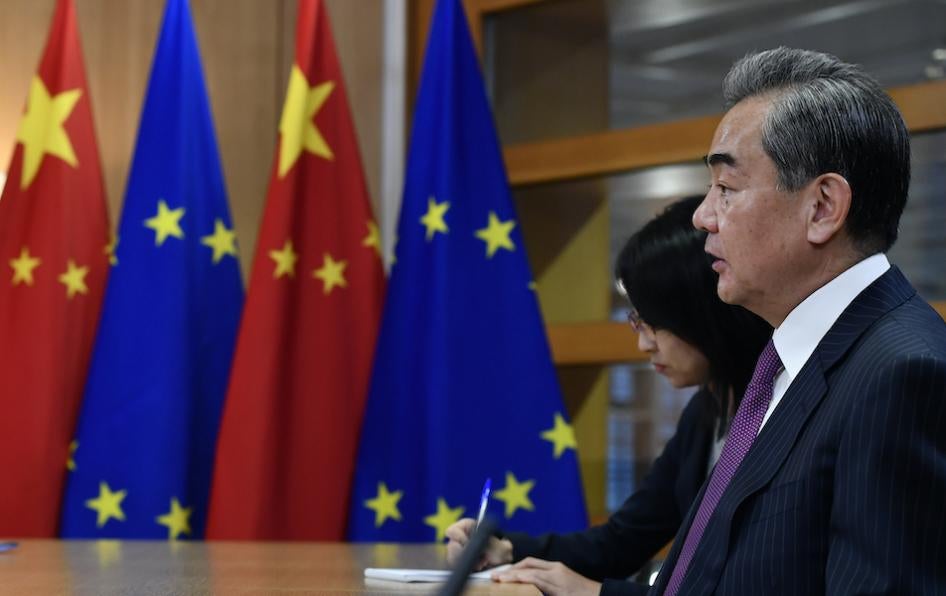(Brussels) – European Union leaders should take firm public stands on human rights concerns while meeting with their counterparts in China, Human Rights Watch said today in releasing a letter to the EU leadership. European Commission President Ursula von der Leyen and European Council President Charles Michel will travel to Beijing to attend the European Union-China summit on December 7 and 8, 2023.
“EU leaders should realize that the Chinese government’s deepening repressive rule will have serious implications for EU-China relations,” said Philippe Dam, EU director at Human Rights Watch. “Von der Leyen and Michel should address China’s rights violations head on and make clear to President Xi Jinping that there can be no business as usual if pervasive repression continues across the country.”
In the past year, there have been many top-level engagements between European and Chinese leaders as the EU and its member countries reviewed their relationships with China. The EU-China Summit comes after Michel’s November 2022 visit to Beijing, von der Leyen’s visit in March, and the visit by the EU top diplomat, Josep Borrell, in October. In June, EU leaders reiterated their concerns over human rights in China, but fell short of detailing a strategy to address Beijing’s alarming rights record.
Human Rights Watch urged the two leaders to press for the release of the unjustly imprisoned EU citizen and Hong Kong bookseller Gui Minhai, the Uyghur scholar and Sakharov Prize laureate Ilham Tohti, and the lawyer Yu Wensheng and his wife, Xu Yan, among many others.
EU institutions and governments of member states should also seriously reconsider their approach toward China, Human Rights Watch said. In particular, the EU and its member states should suspend their human rights dialogue with China, which has become meaningless because of the Chinese authorities’ unwillingness to genuinely engage on human rights issues.
Instead, they should commit to taking more effective action to address its human rights violations and advance prospects for accountability. That should include expanding targeted sanctions against officials responsible for grave violations in Xinjiang, Tibet, and Hong Kong, and taking the lead at the United Nations Human Rights Council toward creating a dedicated UN monitoring mechanism on China.
In Xinjiang, the Chinese authorities’ crimes against humanity against Uyghurs and other Turkic Muslims have included mass arbitrary detention, torture, enforced disappearances, mass surveillance, cultural and religious persecution, separation of families, forced labor, sexual violence, and violations of reproductive rights. In Tibet, the authorities repress and forcibly assimilate Tibetans.
In Hong Kong, the Chinese government has erased the liberties and freedoms after imposing a draconian National Security Law on the city. Across China, the government has further tightened its grip on society, with party-controlled courts handing down harsh sentences for human rights defenders.
The Chinese government’s transnational repression has extended its reach as it offers bounties for exiled Hong Kong democracy activists and former legislators. At the UN, the government is undermining international human rights mechanisms by rewriting norms, while helping to shield other governments from accountability through its veto power at the UN Security Council.
“The EU shouldn’t treat human rights as a tick-the-box exercise, but be prepared to take actions that match the urgency and magnitude of Beijing’s severe repression across the country,” Dam said. “A Chinese government that crushes its peoples basic rights will not be a reliable and accountable partner.”






